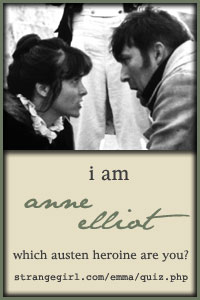
I have been laughing out loud at books lately. I should preface this by saying that I laugh easily, but even I was surprised when I found myself chuckling over the pages of Strunk and White's
The Elements of Style.
The 50th-anniversary edition of
Elements of Style is reviewed by books editor
Laurie Hertzel in today's Minneapolis Star Tribune.
She directs us to skip to the back and read Strunk and White's advice on developing an ear for good writing, particularly their alternate possibilities for
"These are the times that try men's souls."(
Thomas Paine)
Here we have eight short, easy words, forming a simple declarative sentence.The sentence contains no flashy ingredient such as "Damn the torpedoes!" and the words, as you see, are ordinary. Yet in that arrangement they have shown great durability; the sentence is almost into its third century. Now compare a few variations:
Times like these try men's souls.
How trying it is to live in these times!
These are trying times for men's souls.
Soulwise, these are trying times.
It seems unlikely that Thomas Paine could have made his sentiment stick if he had couched it in any of these forms.
That made me grin, as did this:
Another segment of society that has constructed a language of its own is business. The businessman says that ink erasers are in
short supply, that he has
updated the next shipment of these erasers, and that he will
finalize his recommendations at the next meeting of the board. He is speaking a language that is familiar to him and dear to him. Its portentous nouns and verbs invest ordinary events with high adventure; the executive walks among ink erasers, caparisoned like a knight. We should tolerate him -- every man of spirit wants to ride a white horse. The only question is whether his vocabulary is helpful to ordinary prose. Usually, the same ideas can be expressed less formidably, if one makes the effort. A good many of the special words of business seem designed more to express the user's dreams than to express his precise meaning.
. . . even the world of criticism has a modest pouch of private words (
luminous, taut), whose only virtue is that they are exceptionally nimble and can escape from the garden of meaning over the wall. . words that at first glance seem freighted with delicious meaning but that soon burst in air, leaving nothing but a memory or bright sound.
---
I'm sure you noticed that the business buzz words scarcely seem unusual any more.
Let me emphasize that reading lightly through part of
Elements of Style will not have created a noticeable improvement in my writing. Don't even go there. See, not an EoS-approved phrase. Nor that. Nor that.
OK, on to the laughing part:
Or take two American poets, stopping at evening. One stops by woods, the other by laughing flesh.
My little horse must think it queer
To stop without a farmhouse near
Between the woods and frozen lake
The darkest evening of the year.
I have perceived that to be with those I like is enough,
To stop in company with the rest at evening is enough,
To be surrounded by beautiful, curious, breathing, laughing flesh is enough . . .
Because of the characteristic styles, there is a little question about identity here, and if the situations were reversed, with Whitman stopping by woods and Frost by laughing flesh (not one of his regularly scheduled stops) the reader would still know who was who
.
* * *
Not one of his regularly scheduled stops.* * *
Take a look at the picture of lilac buds in the last post. When I posted it, the buds on my lilac had not begun to swell. Today, they are a perfect match for the picture. Spring is one of the rare times when the passage of time is enjoyable.
* * *
Sorry, I had tremendous difficulty with those block quotes and ultimately gave up and removed that formatting.

![Reblog this post [with Zemanta]](http://img.zemanta.com/reblog_e.png?x-id=f8af34a7-3ba4-410d-ae74-4d54a77a0f2a)


![Reblog this post [with Zemanta]](http://img.zemanta.com/reblog_e.png?x-id=b0e97a73-21dd-44ff-8a7d-f11ec1676bef)